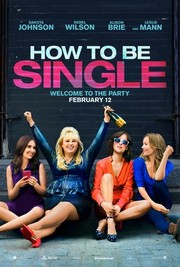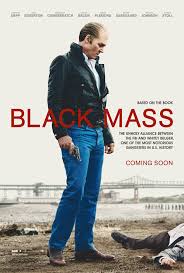Fifty Shades Freed
Posted on February 8, 2018 at 6:36 pm
C| Lowest Recommended Age: | Mature High Schooler |
| MPAA Rating: | Rated R for strong sexual content, nudity, and language |
| Profanity: | Some strong language |
| Alcohol/ Drugs: | Alcohol |
| Violence/ Scariness: | Peril and violence including kidnapping, punching, knife, gun, chase |
| Diversity Issues: | None |
| Date Released to Theaters: | February 9, 2018 |
| Date Released to DVD: | May 7, 2018 |

These are people who are supposed to be exceptionally successful at their jobs who are somehow not especially committed to them or particularly good at them. Anna is a college drop-out now elevated to editor at the publishing company that happens to be owned by her new husband, but entirely on her merits, but the job itself is one of those cutesy Hallmark Christmas movie-type careers where all she has to do is congratulate her hunky author on his success and ask him gently about the next book and tell an assistant to increase the font size on a cover. More important, these are people who share a deep kink connection who are pretty, to use their term, vanilla. Anything at all interesting about the issue of the power dynamics between Ana and Christian is so soft-focus that it barely registers.
It seems Ms. James ran out of ideas about a book and a half ago. All they’ve got left is sex in this and that ultra-luxurious location (more shelter porn than porn porn here) interspersed with some very random thriller moments as a figure from the past wants to destroy the perfect prettiness of the romance. This gives us an opportunity for a chase scene on a mountain road that turns out to be, like so much in the film, foreplay, plus some not at all tense would-be thriller moments and one pretty funny joke.* The tedium is occasionally lessened by some pop song montages. The music is not that great, but it is better than the dialogue. And then, the final whack of the cinematic riding crop, the utterly unnecessary remix montage featuring highlights of the films that we were hoping to have forgotten.
*New variation of the Gothika rule: I will give away the joke to anyone who sends me an email at moviemom@moviemom.com to save you the time and money of seeing the film.
Parents should know that this film includes extensive and explicit sexual references and situations with some BDSM activity, nudity, some strong language, alcohol, and peril and violence including kidnapping, a gun, knives, and punching.
Family discussion: Why did Ana object to Christian’s behavior in the red room on one occasion? What made each of them jealous?
If you like this, try: “9 1/2 Weeks”







